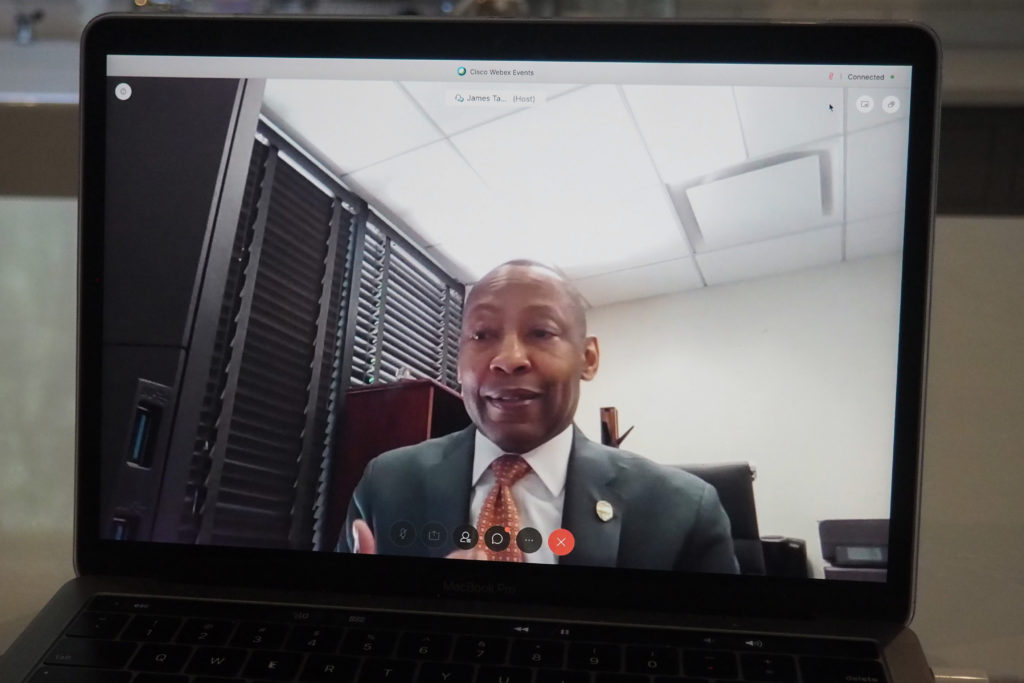Officials overseeing the GW Police Department said they plan to implement reforms to prevent racial profiling and excessive police force.
GWPD Chief James Tate and Associate Vice President of Safety and Security Scott Burnotes spoke to about 100 members of the GW community Wednesday as a part of the month-long #GWInSolidarity programming series, during which they vowed changes to officer training. Tate, who arrived at GW in January, denounced the recent police deaths of George Floyd and other Black Americans in recent months.
“As a Black man, I was hurt and disgusted and saddened by what I saw,” Tate said about Floyd’s death. “As a police chief, I was angered by what I saw. What added to that anger was knowing that once again we find ourselves in this space – why the heck does it keep happening?”
Tate said he was “overwhelmed” by the video showing Floyd’s death, which sparked protests against police brutality across the globe. He first called his family to process what he saw in the video then spoke to a student for a half-hour, Tate said.
“During those 30 minutes, I let loose a little more than I should,” he said. “I said some cuss words.”
When asked about reported incidents of GWPD officers following Black students, Tate said he has “no reason” to doubt their stories because he has experienced racial profiling himself. He said a White police officer once stopped him when he was driving and accused him of stealing the vehicle.
“There is one reason this has happened to me,” Tate said. “It is because of the color of my skin – it couldn’t be anything else.”
He added that current training for officers is “woefully inadequate” and he is “not satisfied” with the level of de-escalation training.
Tate said he has built a training unit focused on de-escalation techniques for officers and will establish implicit bias training, which is not currently provided to officers. He said there “must” be accountability for GWPD officers who act against their training.
“I won’t tolerate it,” Tate said. “You cannot work for me if you use excessive force. You cannot work for me if you lied to me about if you used excessive force or profiled someone.”
Tate said GWPD officers carry a baton and pepper spray but do not carry firearms. All GWPD officers will wear body-worn cameras starting this fall, and he has “no issue” with sharing the footage to “shed some light” when an officer’s conduct comes into question, he said.
“A police department cannot be successful without trust and legitimacy from the community. We have to work to earn it – it is the community who confers the trust and legitimacy on to us. I will work every single day to do that.”
Tate said GWPD does not have a contract with the Metropolitan Police Department but partners with the force for trainings related to First Amendment demonstrations.
“If we have the capability to handle it within our own police department, we should,” Tate said.
Burnotes, who has overseen GWPD since August, said when faced with First Amendment demonstrations, the department identifies a point of contact for the group to set expectations for the protest. GWPD asks MPD for assistance only when necessary, he said.
He said the University is legally required to publicize some crimes that occur on campus, but he does not believe relatively vague descriptions of a suspect, like their race, should be made public because it could cause profiling rather than provide assistance to the public.
“‘Young Black male in 20s’ – how would anyone be able to utilize that in apprehending someone?” Burnotes said.







